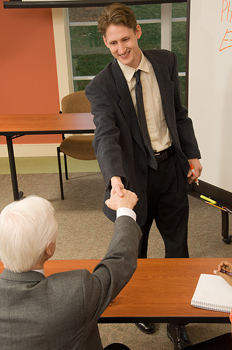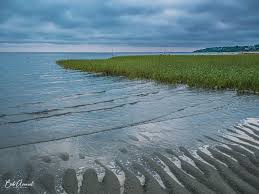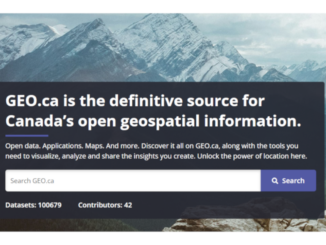GoGeomatics Canada holds career seminars ever so often that are popular for their industry-specific tips and incites. The last time we ran it was at the York University Geomatics Career Fair in January. The seminar contains half a day of materials all focused on finding geospatial jobs in Canada. It’s primary focus is on new graduates and young professionals in GIS, as they can have difficulties finding that first job right out of school. In this workshop, we talk about interviewing for geospatial jobs and how it might differ from other types of jobs that most young graduates have had to interview for in the past. We wanted to share some of the highlights, which will help you ace your next GIS job interview.
Let’s assume you got call or email letting you know that you’ve been selected for an interview for that GIS job you had hoped for. Hooray! You’ve already passed one of the biggest hurdles for getting a job: being chosen for an interview. Let’s check off some things you should do before you walk in the door for that interview. 
Once you got the call or email, it’s time to ask some questions so you can be as prepared and ready as you can be for your big day. These are all questions that, if asked politely, are reasonable to ask the company or organization before your interview:
1) What will the format of the the interview be? Will it be one on one or will it be a panel interview?
2) Who will be interviewing you?
3) Will there be a test? Yes, some-places make you write a test. If so, ask them what will be covered in the test.
Armed with this information, there shouldn’t be any surprises in your interview. At this point, you should know the format of the interview, as well as who will be there. If you have their names, it’s time to jump on LinkedIn to find out what these important people do at work. LinkedIn is a great tool for this. Like many others in the business of hiring geomatics talent, GoGeomatics does the same and will search a candidate’s name in Linkedin to see if they can lookup thier profile. And if you aren’t already aware, it’s time to scrub your social media profiles such as Facebook and Twitter as well. While some employers will say they won’t snoop around on your Facebook profile, many invariably do. A new hire is a big investment, so they will naturally want to find out as much as possible about what they are investing in. That investment could be you.
A couple of weeks before your interview, you’ve got some homework to do. First, go to the location of the interview to check out the route. A lot of anxiety and pre-interview jitters can be managed by taking this simple step. Don’t go inside the offices where you will be interviewing, but figure out how long it takes you to get there, and try to get an idea about the dress code and the work environment. When you show up for the real deal, this will help you relax. If you have been told there is going to be a test, you should be bone up on your basics again. Projections, Datums, coordinates systems procedures to QA & QC a dataset, data sources and geoprocessing. Part of your work should be researching the company or org so you can see what they have been working on in geomatics.
 The night before you interview, get a good night’s rest. Show up to the interview 15 minutes early looking smart. Have a copies of your resume and cover letter for yourself as well as for every person who will be at your interview. Know it backwards and forwards.
The night before you interview, get a good night’s rest. Show up to the interview 15 minutes early looking smart. Have a copies of your resume and cover letter for yourself as well as for every person who will be at your interview. Know it backwards and forwards.
When you get to your interview, be sure to get everyone’s name and write them down on a sheet of paper in front of you. This will help you remember. Try to relax. An interview is a little like a conversation but it’s mostly about you. You would not be sitting down with them if they did not think you could potentially be a good hire.
Without exception, every interview ends with them asking you if you have any questions. Don’t miss this opportunity and rush out the door. It makes you seem disinterested. At this point, some of your homework and research should come into play. Ask them about a project or piece of technology you know they have been working on. They will like to see that you actually know what they do and are keen on it.
At the end of the interview, make sure they you ask for everyone’s business card so you can send a thank you email the next day. This will allow you to follow-up with any questions or clarifications you might want to add to your interview. Lets say you feel you really fumbled with a question: here is a chance to repair the damage by writing a short and concise response with how you would have liked to answer it.
These suggestion form a small part of a larger discussion on strategies for finding geospatial jobs. You can find more of our articles on careers here.
If you’ve had an interesting interview for a GIS job or were asked an unexpected questions please share them with us below.




Be the first to comment